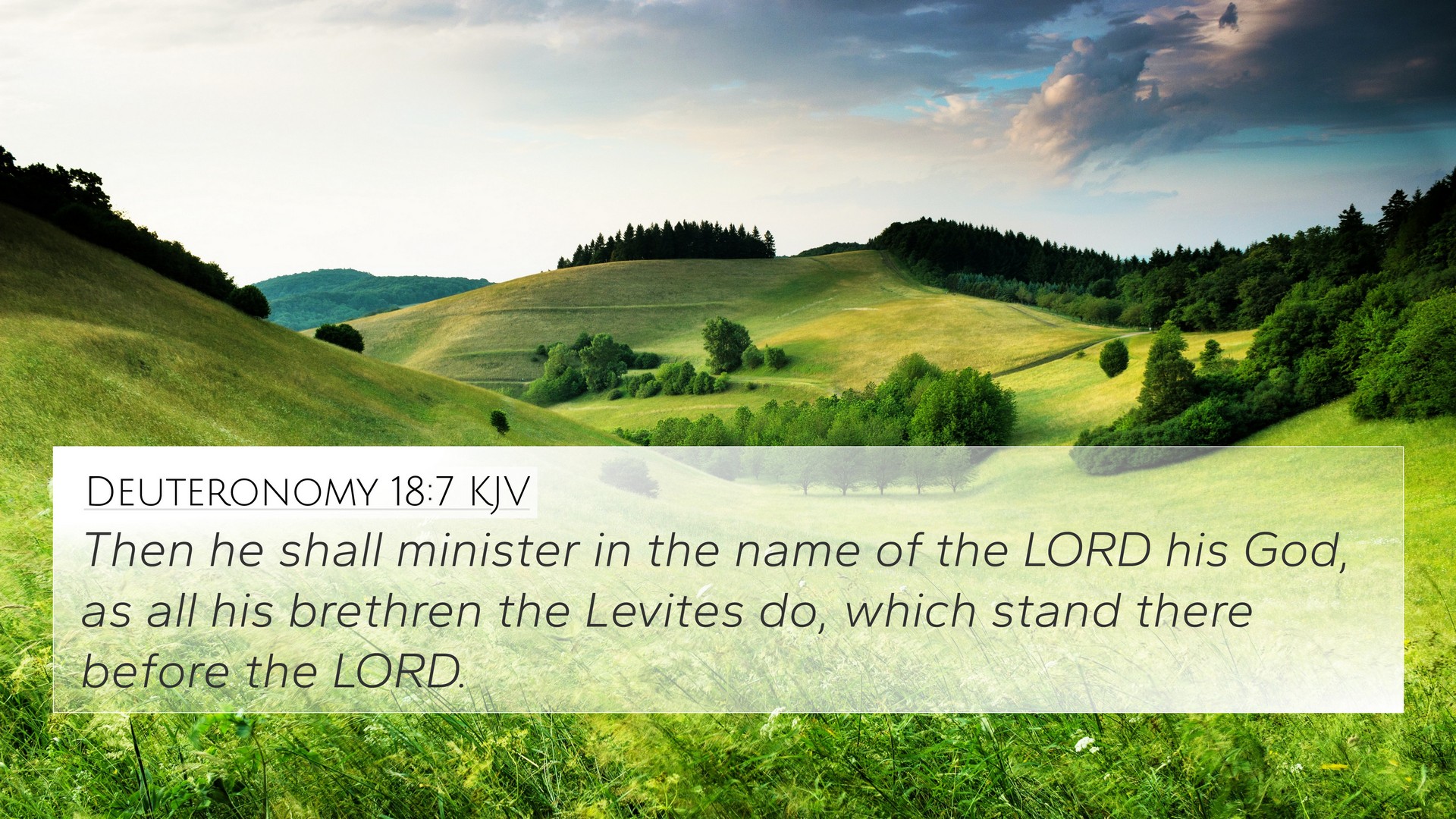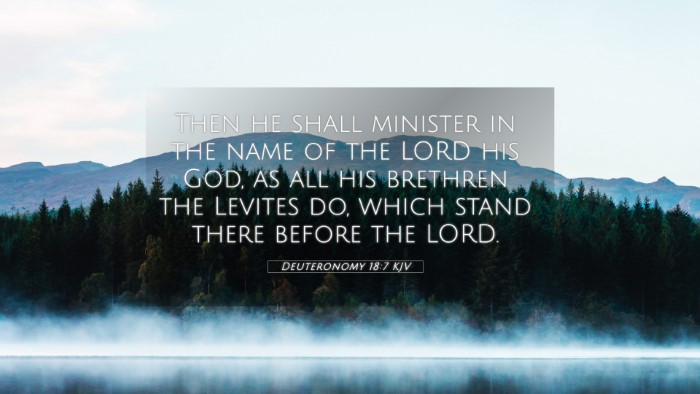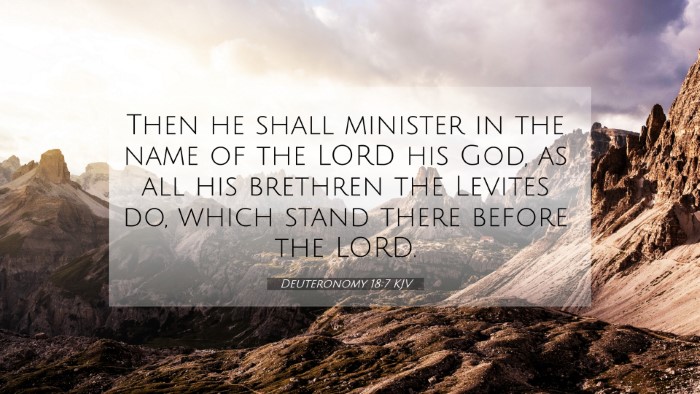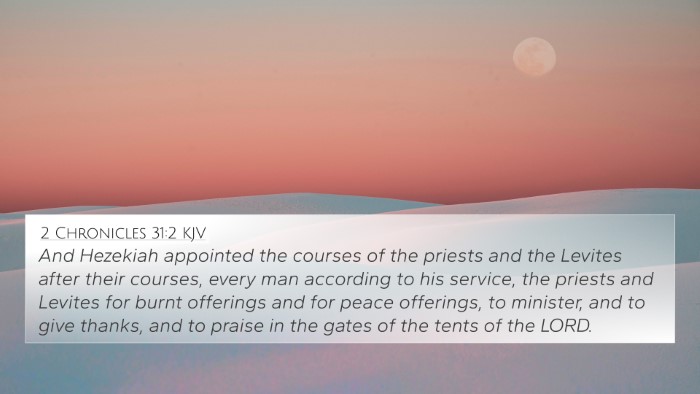Understanding Deuteronomy 18:7
Deuteronomy 18:7 states: "Then he shall minister in the name of the LORD his God, as all his brethren the Levites do, which stand there before the LORD."
Overview of the Verse
This verse refers to the duties of the Levites and highlights the importance of ministering in the name of the Lord. It emphasizes that every Levitical priest performs his sacred duties before God, maintaining a collective spirit of service and representation of the people before the Lord.
Commentary Insights
Various public domain commentators provide deep insights into this verse:
- Matthew Henry's Commentary: Henry emphasizes the priestly role of the Levites, outlining how they are assigned by God to minister on behalf of the people. He notes that their service is not isolated; rather, it is a collaborative effort within the Levitical community, united by their common goal of serving God.
- Albert Barnes: Barnes discusses the significance of "ministering in the name of the LORD," explaining that this duty is underpinned by divine authority. He cites that being a mediator between God and the people is a serious and honored responsibility, and highlights the Levites' role in facilitating worship and sacrifices.
- Adam Clarke: Clarke elaborates on the practices of the Levitical priests and their rituals, reflecting on the shared responsibilities among them. He stresses the importance of purity and dedication in their service, pointing out that every Levite is expected to uphold these sacred tasks with reverence and honor.
Thematic Connections
This verse illustrates several key themes in the Scriptures:
- Priesthood and Worship: This verse connects with broader themes of priesthood in both the Old and New Testaments, emphasizing the continuous role of mediators between God and humanity.
- Service to God: The notion of dedicated service is especially prominent here, resonating with various instances throughout Scripture where people are called to serve in the name of God.
- Community and Unity: The unity of the Levites in their calling reflects a crucial aspect of the faith community, encouraging believers to work together in their spiritual duties.
Cross-References
Deuteronomy 18:7 relates to several other Bible verses, illustrating the interconnectedness of the Scriptures:
- Exodus 28:1: Highlights the calling of Aaron and his sons to serve as priests.
- Leviticus 10:10-11: Discusses the distinction between holy and common and prescribes duties for the priests.
- Numbers 3:6-10: Establishes the Levites' role in the service of the Tabernacle for the people of Israel.
- Hebrews 5:1: Enunciates the priestly duties of individuals chosen from among men to represent them before God.
- Hebrews 7:11: Examines the need for a new order of priesthood, drawing connections with the ministry of Jesus.
- 1 Peter 2:5: Calls believers a "royal priesthood," illustrating the continuity of priestly duties among all followers of Christ.
- 1 Timothy 2:5: States that there is one mediator between God and men, further solidifying the role of Christ as the ultimate high priest.
Applying Cross-Referencing Tools
To delve deeper into the connections between Bible verses, consider the following tools and methods:
- Bible Concordance: A comprehensive resource that lists words and themes to find related verses.
- Bible Cross-Reference Guide: Useful for finding parallels across different books in Scripture.
- Cross-Reference Bible Study: Engages in analytical methods to compare themes and teachings across Scripture.
- Identifying Connections: Use thematic studies to analyze the continuity between the Old and New Testaments.
Conclusion
Deuteronomy 18:7 serves as a pivotal verse that encapsulates the responsibility and service of the Levitical priests. By understanding this verse within its wider context through commentaries and cross-references, believers can gain a richer insight into the continuity of God's call for service, unity among His people, and the significance of mediators in worship. The theological implications of this verse are profound, encouraging believers to recognize their roles in the ongoing narrative of God’s relationship with humanity.



